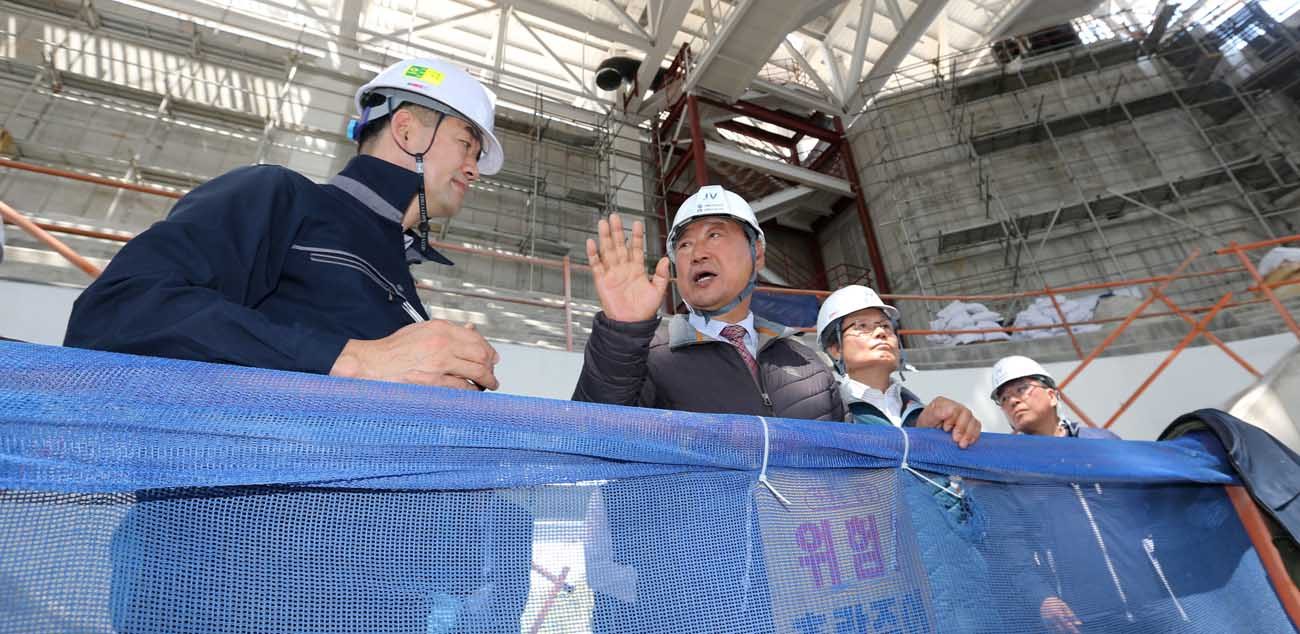OSAKA, Japan (CNS) — Parishes in the South Korean province that will host the 2018 Winter Olympics are praying for the event’s success as tensions increase between Washington and Pyongyang, a spokesman for South Korea’s Diocese of Chuncheon told Catholic News Service.
The prayers are included in general Mass intentions every Sunday, said Father Apostle John Kim, diocesan spokesman in Chuncheon, South Korea.
The diocese, which straddles the border between South Korea and North Korea, expects demand for pastoral services from athletes, coaches and others at the games in February 2018. Priests will offer Mass and confessions at the Olympic Village.
[hotblock]
“It is important because the athletes need support, confidence, courage and resilience,” Father Kim said.
Some countries have said they may not send delegations if tensions worsen. The Pyeongchang 2018 Olympic sites are about 50 miles from the border, within the range of North Korean artillery and missiles.
Around 6,500 Olympic and Paralympic athletes and other team members are scheduled to attend. While the International Olympic Committee bans proselytizing at the games, organizers must provide prayer rooms and Bibles as well as texts for people of other faiths.
The main multifaith prayer center will operate within the Olympic Village at Yongpyeong, Feb. 1 to March 21. A smaller facility in Gangneung will be open only during February. A Catholic priest and translators will be available at both centers.
The diocese is asking foreign priests accompanying Olympic delegations to get in contact with them; those priests might be asked to celebrate Mass in their own languages.
Austrian Cistercian Father Johannes Paul Chavanne accompanied his nation’s team to the 2016 Summer Olympics in Rio de Janeiro and the 2014 Winter Games in Sochi, Russia. Father Chavanne, who teaches at the Pope Benedict XVI Philosophical-Theological University in Heiligenkreuz, Austria, plans to attend Pyeonchang, too.
[tower]
Father Chavanne said at the previous games, he celebrated Mass and offered talks, counseling and confession, including at a residential facility used by the Austrian team.
“Many athletes let me know that they are very happy that a priest is there. Sometimes I am one of the few people in their surroundings who doesn’t judge them on their success, but looks at them as a single person,” he said.
In Rio, he administered the sacrament of confirmation to two athletes and a physiotherapist, and he also ministered to Olympic officials.
But four months out, uncertainty lingers over the games amid the war of words between Washington and Pyongyang. France, Germany and Austria have said their teams might stay home.
“If the situation worsens and the security of our athletes is no longer guaranteed, we will not go to South Korea,” Karl Stoss, who heads Austria’s Olympic Committee, said in September. Austria is a world leader in alpine skiing and ski jumping.
Meanwhile, the lingering division on the Korean Peninsula is reflected in the fact that the Diocese of Chuncheon includes about 4,300 square miles of territory inside North Korea. Little is known about the environment for Catholics north of the border, but it is assumed to be bleak.
The diocese expects no communication with its northern districts during the games. Father Kim said it is difficult to contact Catholics there at all.
After so many decades of division, Chuncheon’s northern territory is now a claim in name only, said Donald Baker, a Korea expert in the Department of Asian Studies at the University of British Columbia.
“There is no contact between Catholics in Chuncheon and Catholics north of the (Demilitarized Zone),” Baker said. “It is another sad legacy of the war.”
Baker noted that the Archdiocese of Seoul is similarly severed from some of its northern districts. Three Catholic dioceses lie entirely inside North Korea. Bishops for these reside in Seoul, but the dioceses have no other assigned clergy.
PREVIOUS: Pope tops 40 million followers on Twitter, 5 million on Instagram
NEXT: Iraqi-Kurdish war could be deadly for Christians, warns U.S. adviser




Share this story